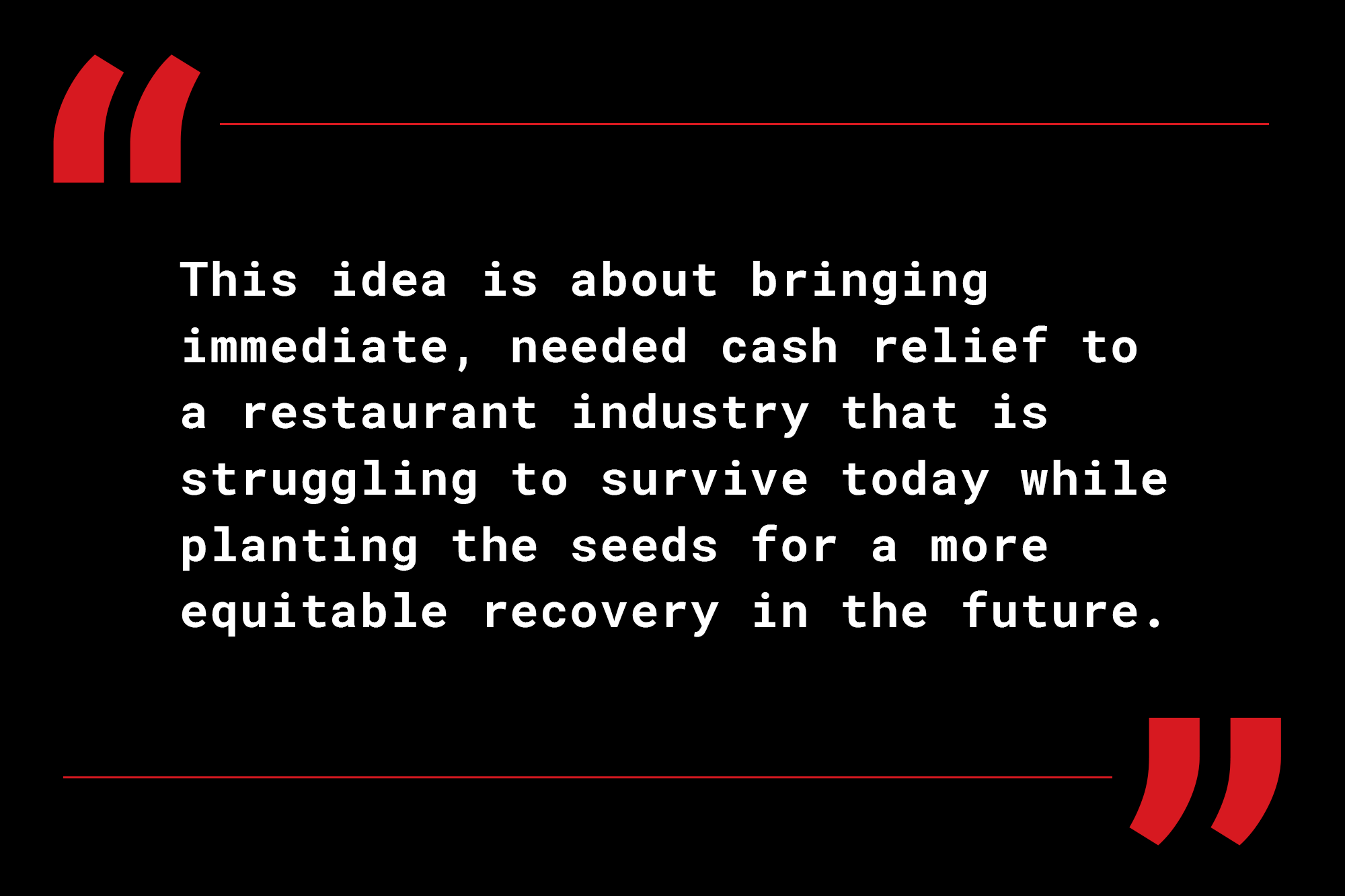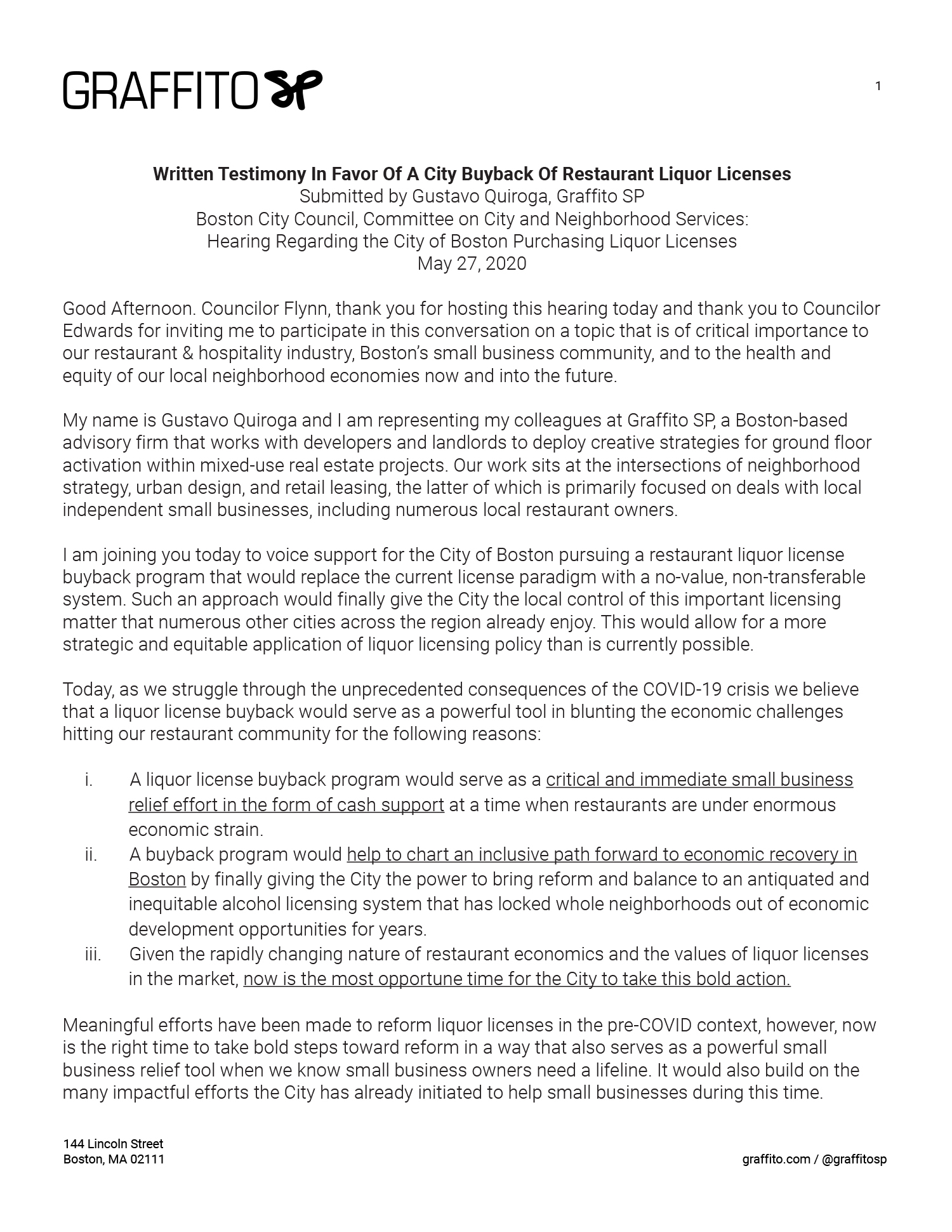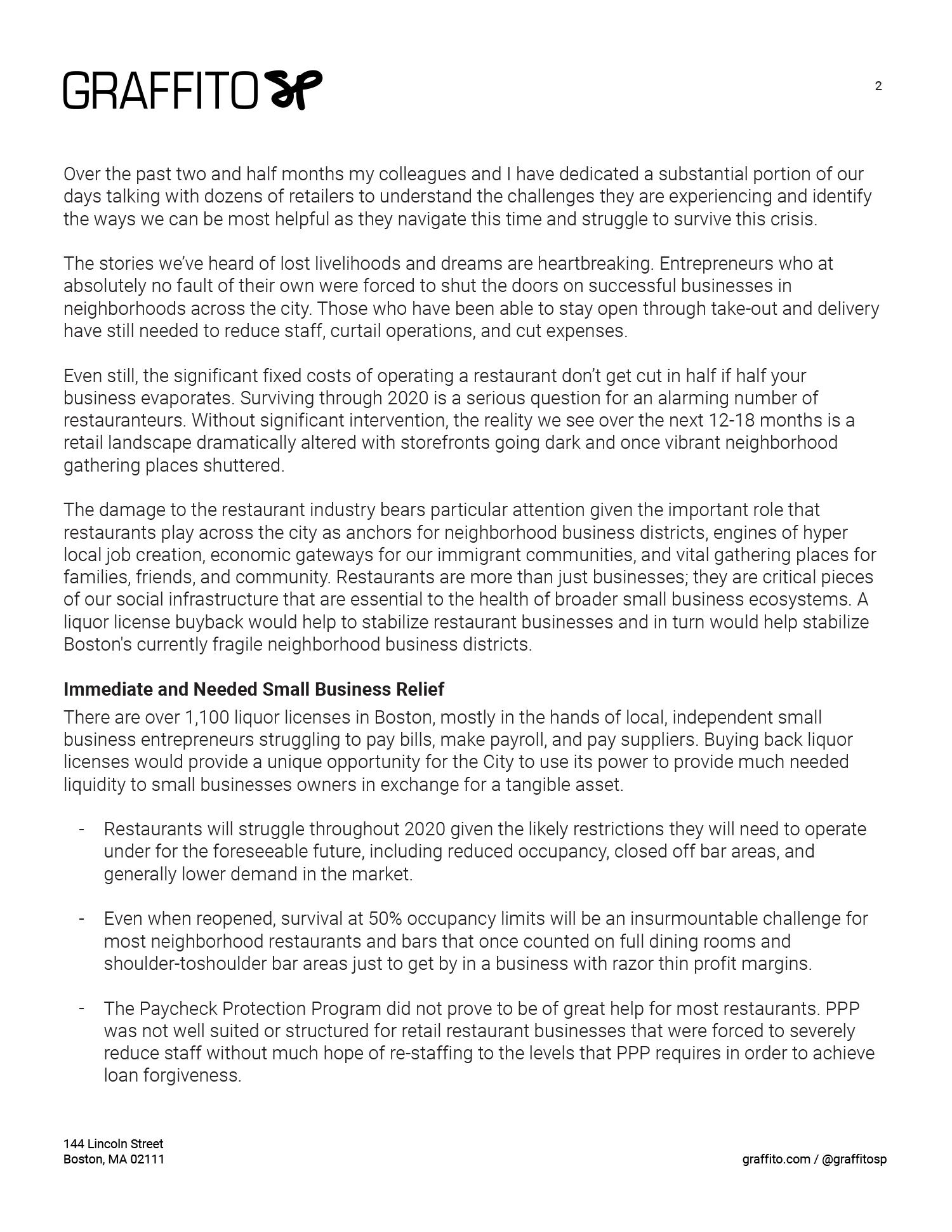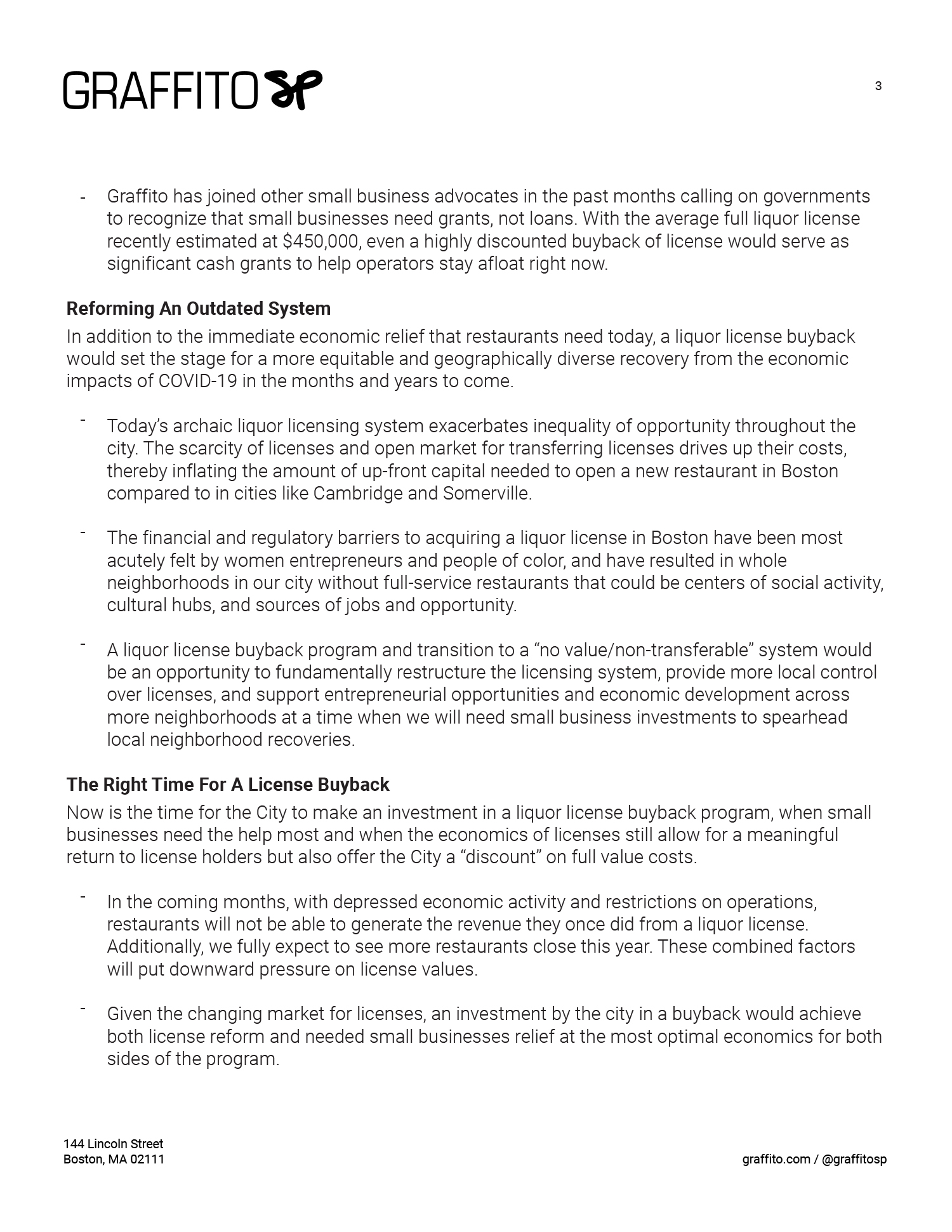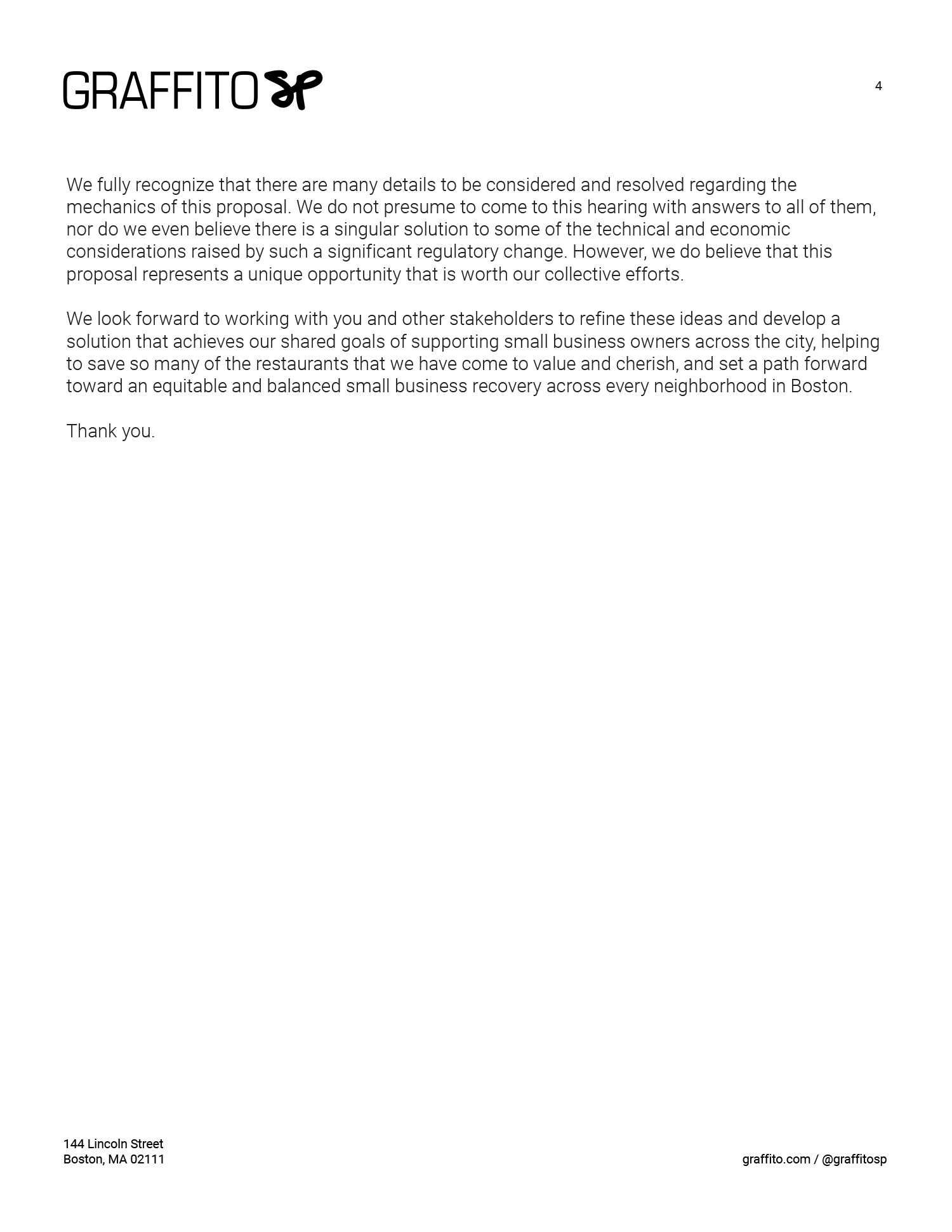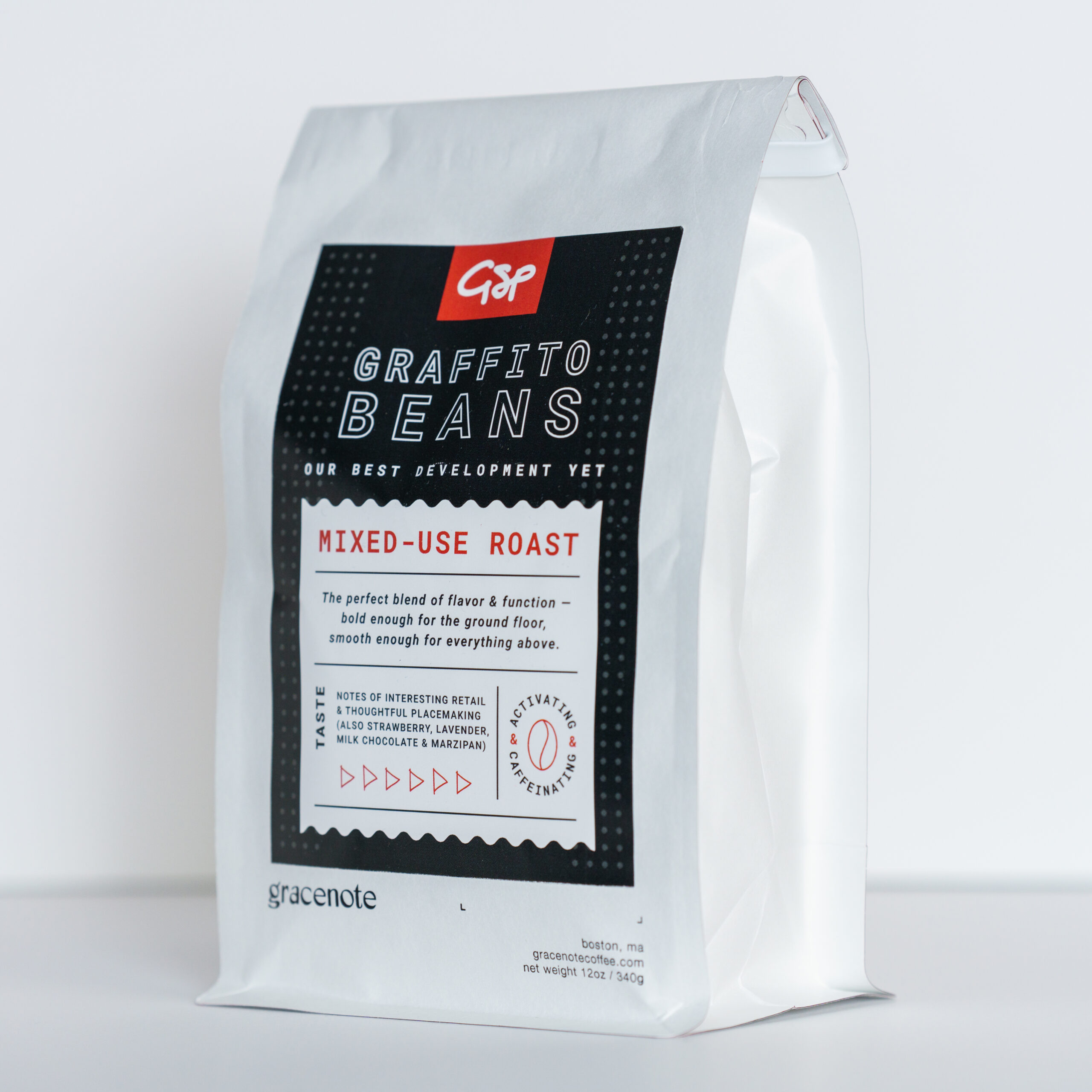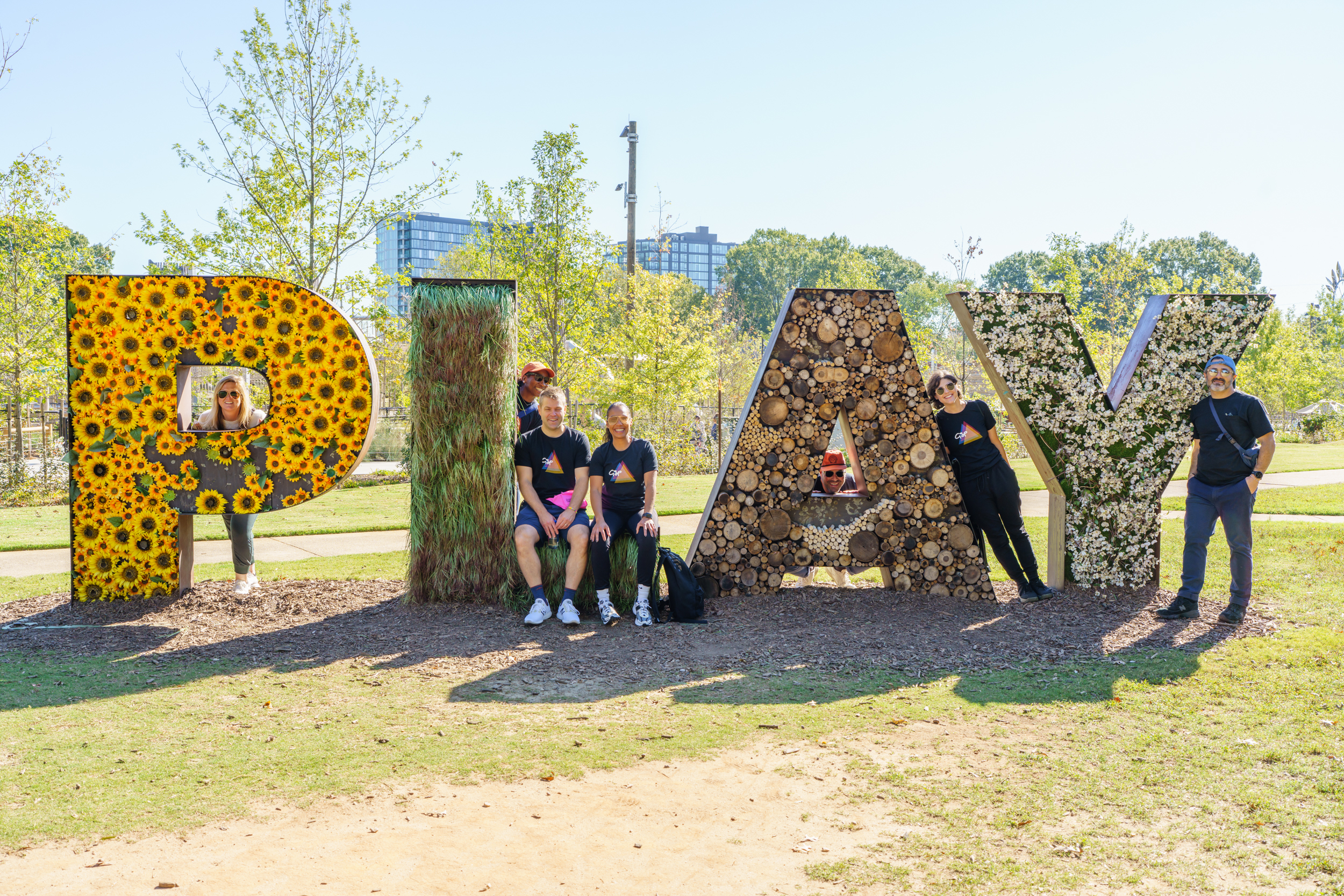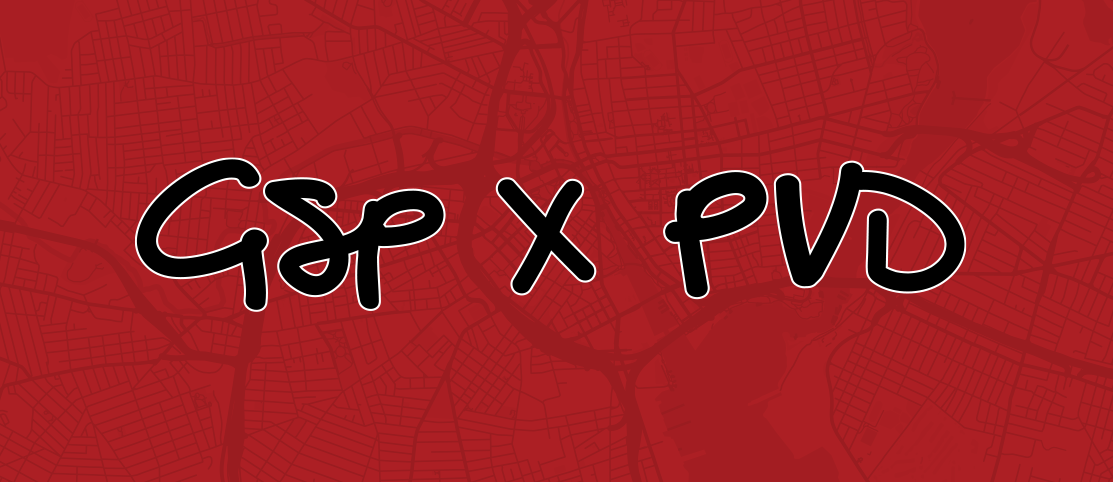Take 3: Liquor License Buybacks, Now In City Council Testimony Form
If you’ve been following along with this blog the past few months you may recall the Graffito team has been talking a bit about liquor license policy, going all the way back to March 17 in Week 1 of this mess; then a follow up in April. The idea that was put out there was, what if Boston “bought back” all of the restaurant liquor licenses in the city as a way of providing restaurants with much needed cash relief right now? Oh, and at the same time finally reform Boston’s outdated and out of balance liquor licensing system. Sort of a crazy idea, huh?
Well, one thing led to another and a couple of weeks back Jesse and I found ourselves on a call with Boston City Councilor Lydia Edwards who had just a few days before announced a hearing order to look into just such a liquor license buyback idea. Jesse, the Councilor, and I spent the better part of an hour in robust discussion about the nitty gritty of licensing in the city: subtleties of the laws and regulations, the racial and economic inequities that have risen across our city from the current licensing system, and the rapidly changing economics of licenses in the context of a COVID-induced restaurant crisis. Following our call Councilor Edwards invited us to testify at her hearing on the matter.
So, yesterday (May 27th) I logged onto Zoom for a virtual hearing of the City Council’s Committee on City and Neighborhood Services to share my – and collectively, Graffito’s – perspective on this issue. I was joined by second-generation North End restauranteur Phil Frattaroli and Josh Weinstein, owner of the incomparable The Quiet Few bar in East Boston. Kathleen Joyce, Chair of the City’s Licensing Board and a representative from the City’s Office of Economic Development also participated. I was impressed to see more than half of the Council participate in this hearing as well. The hearing was covered in this Globe article.
Below is the complete text of my written testimony that was submitted to the Committee for your reading pleasure.
The thrust of this idea is that the City would pay existing license holders a cash for their licenses and in exchange would re-issue a new license that was no-value and non-transferable for a relatively small annual fee. In February the average full liquor license was around $450,000. An absolutely bonkers sum of cash for a chef or restaurant entrepreneur to have to come up with in order to serve a cocktail in their restaurant. Compare that to the several thousand bucks a year Cambridge asks of operators for their license. Look at liquor license costs and you start to understand why so many of the more experimental, innovative restaurants have opened outside Boston’s city lines in the past decade.
But right now our case for a license buy back is not about spurring more creative and experimental restaurant concepts in Boston. It’s about bringing direct, immediate, needed cash relief to a restaurant industry that is struggling to survive today while planting the seeds for a more equitable recovery in the future. From my written testimony:
Today, as we struggle through the unprecedented consequences of the COVID-19 crisis we believe that a liquor license buyback would serve as a powerful tool in blunting the economic challenges hitting our restaurant community for the following reasons:
- A liquor license buyback program would serve as a critical and immediate small business relief effort in the form of cash support at a time when restaurants are under enormous economic strain.
- A buyback program would help to chart an inclusive path forward to economic recovery in Boston by finally giving the City the power to bring reform and balance to an antiquated and inequitable alcohol licensing system that has locked whole neighborhoods out of economic development opportunities for years.
- Given the rapidly changing nature of restaurant economics and the values of liquor licenses in the market, now is the most opportune time for the City to take this bold action.
While time was limited in the hearing and the format is a tough for robust back and forth discussion, I was encouraged that every councilor in attendance voiced some form of support for this idea or at least for exploring it further. And while the City’s Licensing Board Chair shared a number of concerns and questions about the administrative hurdles, legal considerations, and questions about certain contract issues, it’s clear that Chairwoman Joyce is a real ally in using the Licensing Board to help and support small businesses through these times. She gets the inherit problems and is sincere in wanting to find solutions to the thorny issues that licensing present. Make no mistake: this is a complicated issue and numerous issues would need to be resolved to make it possible, and yes, it would be pricey. But the administrative and legal issues are not insurmountable, simply work that needs to be done. As for the costs, if we see this as a small business and neighborhood economic development measure it seems to be well worth it.
There is also no doubt that there is wide agreement within the City Council that the current liquor licensing system is broken and has resulted in considerable inequities across neighborhoods. Fixing the system is not a question; it’s how we do that that remains up for debate. Let’s press reset on the system in a way that injects meaningful relief dollars into the restaurant small businesses that serve as anchors for neighborhood business districts, employ many thousands of local residents, and act as critical pieces of our social infrastructure. A dollar spent saving restaurants will have a multiplier effect in helping to support and bolster broader neighborhood ecosystems. It’s a win-win.
This is a challenging issue that good, smart people have been pushing on for years. We don’t have any illusions it will be resolved with one simple City Council hearing. But we’re going to keep at it to help drive this forward as far as we can. The current licensing system has long since hit its expiration date. If there were ever a time for big action to trash it, it’s now.
Got thoughts, questions, strong opinions, ideas to offer, short piers to suggest I take a long walk off? Send them my way! I’m eager to hear what folks think: Gustavo@graffito.com or @GooseQ on Twitter.
